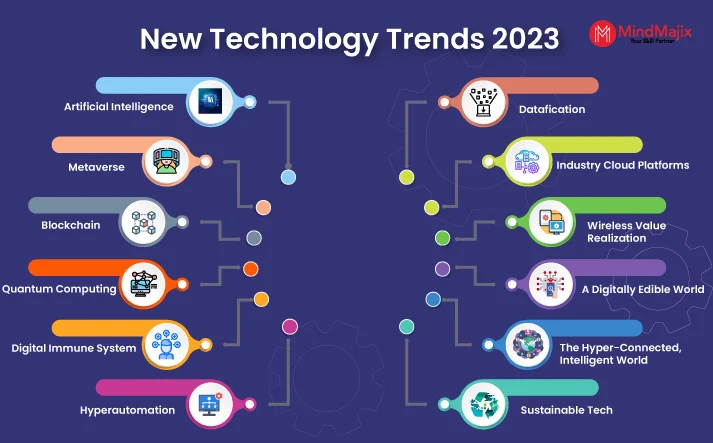What is Quantum Computing?
Quantum computing is a revolutionary field in technology that leverages the principles of quantum mechanics to process information. Unlike classical computers, which use bits, quantum computers use qubits, enabling them to solve complex problems faster and more efficiently. This advancement is poised to redefine the landscape of modern technology.
The Key Differences Between Classical and Quantum Computing
The primary difference between classical and quantum computing lies in how they handle data. While classical computers process data sequentially, quantum computers can perform multiple calculations simultaneously. This fundamental shift has significant implications for various technology sectors.
How Quantum Computing Enhances Artificial Intelligence
Quantum computing has the potential to supercharge artificial intelligence (AI) by accelerating machine learning algorithms. This integration of quantum computing and AI can transform industries, allowing technology to tackle problems that were previously unsolvable, such as optimizing large-scale data analysis.
The Role of Quantum Computing in Cybersecurity
Quantum computing poses both opportunities and challenges in the field of cybersecurity. While it can enhance encryption techniques, it also threatens to break existing cryptographic methods. The future of cybersecurity will depend on how technology adapts to this quantum leap.
Applications of Quantum Computing in Healthcare Technology
Quantum computing has immense potential in healthcare technology. From drug discovery to personalized medicine, quantum algorithms can analyze complex biological data faster than ever. This advancement will revolutionize how technology contributes to medical breakthroughs.
Quantum Computing and Its Impact on Financial Technology
In financial technology, quantum computing can optimize portfolio management, risk analysis, and fraud detection. By processing vast amounts of financial data rapidly, quantum computers are set to transform the global financial landscape, ensuring greater efficiency in technology-driven solutions.
The Challenges Facing Quantum Computing Development
Despite its promise, quantum computing faces several challenges, including scalability, error correction, and high development costs. Addressing these issues is critical to unlocking the full potential of this groundbreaking technology.
The Future of Quantum Computing in Global Technology
The future of quantum computing is intertwined with the evolution of technology. As researchers overcome current limitations, quantum computers will become more accessible, driving innovation across industries. This paradigm shift will redefine what technology can achieve.
Conclusion
Quantum computing represents a transformative leap in the world of technology. Its ability to solve complex problems, enhance AI, and revolutionize industries positions it as a cornerstone of future technological advancements. By embracing the challenges and opportunities of quantum computing, the global technology ecosystem can unlock unprecedented possibilities.
Frequently Asked Questions
- What is quantum computing?
- It is a type of computing that uses qubits to process data based on quantum mechanics principles.
- How does quantum computing differ from classical computing?
- Quantum computing performs multiple calculations simultaneously, unlike sequential classical computing.
- What industries can benefit from quantum computing?
- Industries like healthcare, finance, and artificial intelligence can gain significant advantages.
- How does quantum computing impact cybersecurity?
- It enhances encryption methods but also poses challenges to existing cryptographic systems.
- What is the role of quantum computing in AI?
- It accelerates machine learning algorithms, solving complex AI problems faster.
- What are the challenges of quantum computing?
- Scalability, error correction, and high costs are key challenges.
- How does quantum computing affect financial technology?
- It optimizes portfolio management, risk analysis, and fraud detection.
- Can quantum computing revolutionize healthcare technology?
- Yes, it enables faster drug discovery and personalized medicine development.
- What is the future of quantum computing?
- It includes overcoming current limitations and driving innovation across industries.
- Why is quantum computing important for technology?
- It represents a major advancement in solving complex problems and transforming industries.




